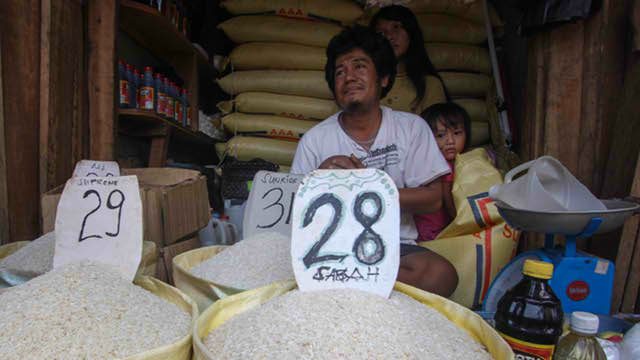SUMMARY
This is AI generated summarization, which may have errors. For context, always refer to the full article.

MANILA, Philippines – The vice governor of Basilan, a province in the southern Philippine island group of Mindanao, criticized a proposed ban on barter trade between Mindanao and Sabah.
In a news release by the Philippine Department of Foreign Affairs on Monday, June 1, Basilan Vice Governor Keemhar Jay Sakkalahul said, “It would be counterproductive for both sides if a ban is implemented.”
Sabah is a territory controlled by Malaysia but claimed by the Philippines. (READ: Sabah as the last gold coin)
Sabah’s police inspector general, Tan Sri Khalid Abdul Bakar, reportedly proposed the ban on barter trade “as a security measure.”
He suggested this after 4 gunmen, allegedly linked to the Abu Sayyaf terrorist group in the Philippines, abducted two Malaysians in Sabah on May 14.
Sakkalahul, however, said the proposed ban will affect even businesses in Sabah. “Their sales and income will definitely go down if there will be a barter trade ban,” she said.
She added that the proposed ban will be “contrary to the vision” to develop Mindanao and Sabah “as engines for growth in the region.”
Barter trading is a centuries-old practice that goes back to the time when “barter traders” directly exchanged goods for other goods or services without using currencies. They still call it barter even if it has transformed into commercial trading. (READ: Malaysia restricts ‘barter’ in Sabah)
Residents of Western Mindanao prefer to purchase goods in Sabah, where commodities are cheap. For Tawi-Tawi residents, it is also easier to sail to Sabah than to sail to Zamboanga City.
‘Closer security cooperation’ sought
Sakkalahul aired her concerns over the barter trade on May 28, in a courtesy call at the Philippine embassy in Kuala Lumpur, Malaysia.
The vice governor stressed economic development in Mindanao and Sabah “will ensure long-term stability and order, as the people will feel the benefits in terms of jobs, income and a better life for themselves and their families.”
“It is also what will consolidate the peace process in Mindanao,” she said, referring to efforts to end a 4-decade Muslim secessionist movement in the southern Philippines.
Philippine Deputy Chief of Mission and Consul General Medardo Macaraig, for his part, called for “closer security cooperation” between Mindanao and Sabah to address security issues.
This comes as issues between the Philippines and Malaysia over Sabah have resurfaced in recent weeks.
On May 19, Malaysia summoned Macaraig to reject the position of Philippine President Benigno Aquino III that his country will not drop its claim over Sabah.
Sabah is a resource-rich area about the size of Ireland on the northern tip of remote Borneo island.
It was once under the control of the Sulu sultanate, which wielded power over the Sulu islands in the Muslim southern Philippines and part of Borneo. The advance of European colonialism, however, eroded the sultanate’s powers.
It officially lost Sabah in 1878, via a loosely worded contract, to a British trading company that paved the way for it to eventually join the new nation of Malaysia in 1963.
While Sabah has prospered, the remote Sulu islands are among the poorest parts of the Philippines and a breeding ground for insurgents who dream of a Muslim homeland that is independent from the government in Manila. – with reports from Agence France-Presse/Rappler.com
Add a comment
How does this make you feel?
There are no comments yet. Add your comment to start the conversation.